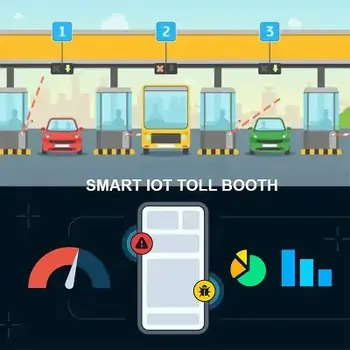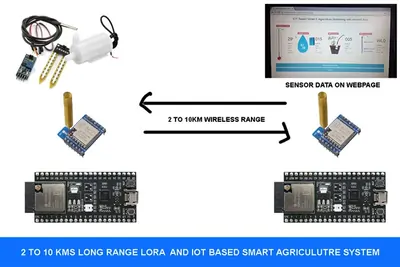Introduction:
In today's fast-paced world, GPS tracking systems have become indispensable for various industries. The convergence of Internet of Things (IoT) and Long Range (LoRa) technology has brought about a significant breakthrough in GPS tracking, enhancing accuracy, reliability, and efficiency. In this article, we will explore the remarkable capabilities of IoT and LoRa-based GPS tracking systems and how they are revolutionizing the way we monitor and manage assets.
With the advent of IoT and LoRa technology, GPS tracking systems have entered a new era of connectivity and efficiency. IoT, with its network of interconnected devices, enables seamless communication between assets and central systems, facilitating real-time tracking and monitoring. LoRa, a low-power wide-area network (LPWAN) technology, empowers GPS tracking systems with extended coverage and enhanced battery life. This combination allows businesses to track and manage assets more effectively, resulting in improved operational efficiency and cost savings.
Benefits of IoT and LoRa-based GPS Tracking Systems:
Enhanced Accuracy: IoT and LoRa-enabled GPS tracking systems provide accurate location data, allowing businesses to precisely monitor and locate assets in real-time. This accuracy is crucial for industries like logistics, fleet management, and supply chain, where timely information can optimize routes, prevent theft, and streamline operations.
Extended Coverage: LoRa technology enables GPS tracking systems to achieve long-range connectivity even in remote or challenging environments. With wider coverage, businesses can track assets across vast areas, such as large construction sites, outdoor facilities, and transportation networks, without compromising signal strength or reliability.
Cost-Effective: IoT and LoRa-based GPS tracking systems offer cost savings in multiple ways. LoRa's low-power consumption extends battery life, reducing maintenance and replacement costs. Additionally, IoT connectivity eliminates the need for expensive infrastructure and reliance on cellular networks, resulting in reduced operational expenses.
Real-Time Monitoring: By leveraging IoT connectivity, businesses gain real-time visibility into asset locations, status, and environmental conditions. This enables proactive decision-making, efficient resource allocation, and effective risk management. Real-time alerts and notifications can be configured to ensure immediate response to critical events, such as unauthorized asset movement or sudden temperature changes.
Scalability and Flexibility: IoT and LoRa technology provide scalable solutions that can adapt to evolving business needs. Whether tracking a few assets or managing an extensive fleet, the system can effortlessly accommodate growth without compromising performance. The flexibility of IoT and LoRa-based GPS tracking systems allows for customization and integration with existing infrastructure and software applications.
Major Features of the IoT and LoRa-Based GPS Tracking System:
Real-Time Location Tracking: The GPS tracking system utilizes IoT and LoRa technology to provide accurate and real-time location updates of assets. Businesses can monitor the movement and whereabouts of their assets on a centralized dashboard, enabling efficient asset management and increased security.
Geo-Fencing and Alerts: The system allows the creation of virtual boundaries, known as geo-fences, around specific areas. Whenever an asset enters or exits these predefined zones, instant notifications and alerts are triggered, enabling businesses to promptly respond to any unauthorized or unusual activity.
Long Battery Life: Leveraging the low-power consumption of LoRa technology, the GPS tracking system ensures long battery life for the tracked assets. This feature eliminates the need for frequent battery replacements and significantly reduces maintenance costs.
Wide Area Coverage: The LoRa-based GPS tracking system provides an extensive coverage range, enabling businesses to track assets even in remote or geographically challenging areas. This feature is particularly beneficial for industries operating in large-scale environments, such as construction sites, agriculture, and transportation networks.
Environmental Monitoring: The IoT connectivity of the GPS tracking system allows for the integration of environmental sensors. Businesses can monitor environmental conditions such as temperature, humidity, and vibration in real-time. This feature is vital for industries that require precise environmental control, such as pharmaceuticals, food transportation, and perishable goods.
Integration and Compatibility: The GPS tracking system seamlessly integrates with existing business infrastructure, software applications, and third-party platforms. It provides compatibility with various devices and operating systems, ensuring a smooth transition and easy implementation for businesses.
Applications of the IoT and LoRa-Based GPS Tracking System:
Logistics and Supply Chain: The system enables real-time tracking and monitoring of goods, ensuring accurate delivery, reducing theft risks, and optimizing supply chain operations. It provides visibility into the entire logistics process, from warehouses to distribution centers and final destinations.
Fleet Management: Businesses can track and manage their fleet of vehicles, including trucks, delivery vans, and service vehicles. Real-time location updates, route optimization, and maintenance alerts enhance operational efficiency, improve fuel consumption, and ensure timely deliveries.
Asset Tracking: The GPS tracking system is ideal for monitoring high-value assets such as equipment, machinery, and containers. Businesses can prevent theft, efficiently allocate resources, schedule maintenance, and minimize asset downtime.
Personal and Pet Tracking: The system can be utilized for personal safety and pet tracking purposes. It allows individuals to track the location of their loved ones or monitor the movement of their pets, providing peace of mind and ensuring their well-being.
Field Service Management: Industries that rely on field services, such as utilities, maintenance, and healthcare, can benefit from the system. It enables businesses to track and manage field personnel, optimize service routes, and respond promptly to emergencies or customer requests.
Agriculture and Livestock Management: The GPS tracking system assists in monitoring agricultural machinery, livestock, and crop conditions. Real-time data on equipment usage, animal movement, and environmental factors allows for better resource allocation, disease prevention, and yield optimization.
Outdoor Adventure and Sports: Individuals engaged in outdoor activities, such as hiking, camping, or extreme sports, can utilize the GPS tracking system for personal safety and location tracking. It provides real-time updates on their whereabouts, ensuring their well-being and enabling prompt rescue in case of emergencies.
The IoT and LoRa-based GPS tracking system offers a wide range of applications across industries, providing businesses and individuals with enhanced
Conclusion:
The fusion of IoT and LoRa technology has revolutionized the capabilities of GPS tracking systems. With enhanced accuracy, extended coverage, and cost-effective operations, businesses across industries can optimize their asset management and streamline operations. Whether it's logistics, fleet management, or supply chain, IoT and LoRa-based GPS tracking systems offer unprecedented benefits and pave the way for a smarter, more connected future. Embracing this technology will undoubtedly give businesses a competitive edge in today's dynamic market.











